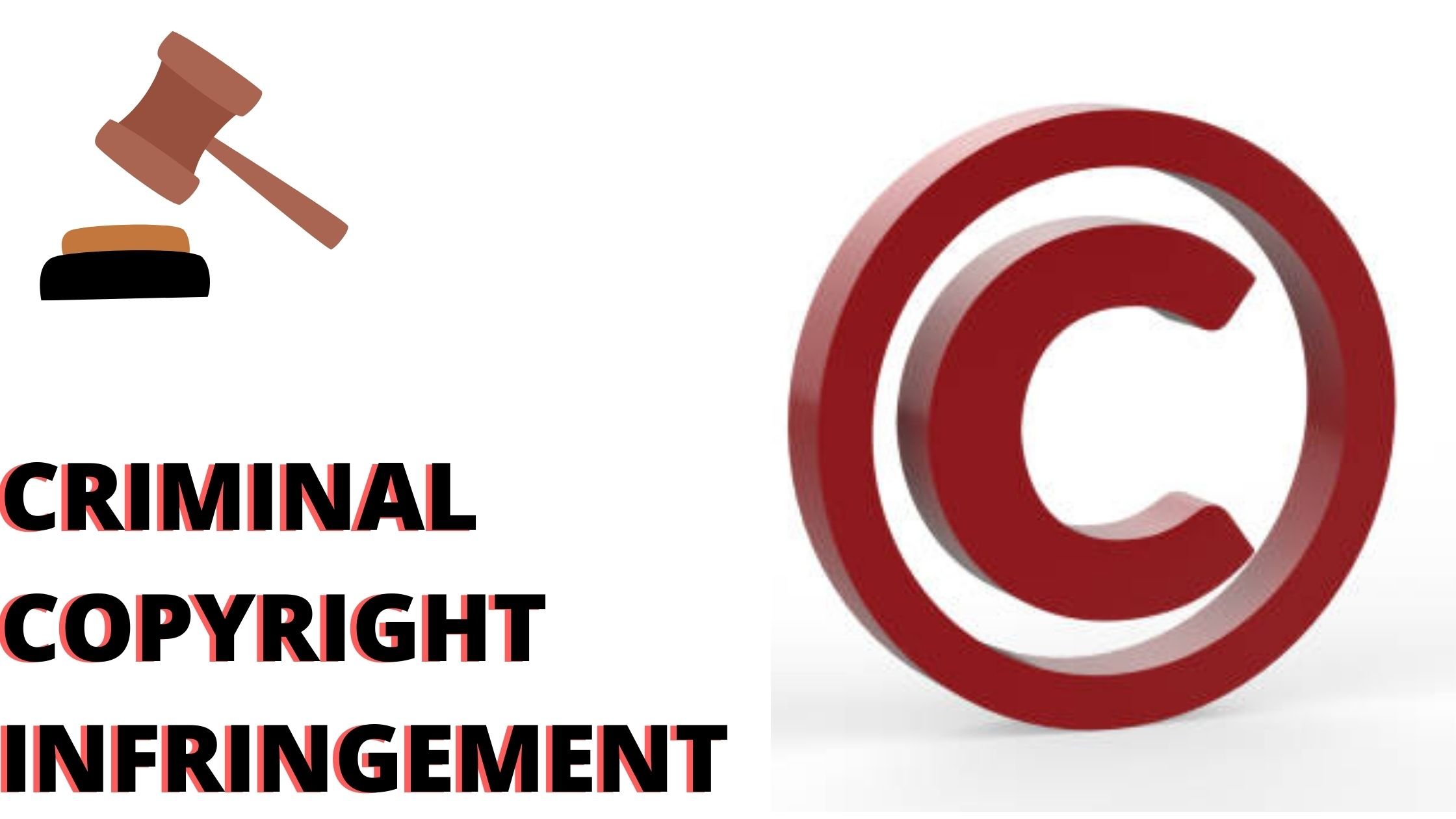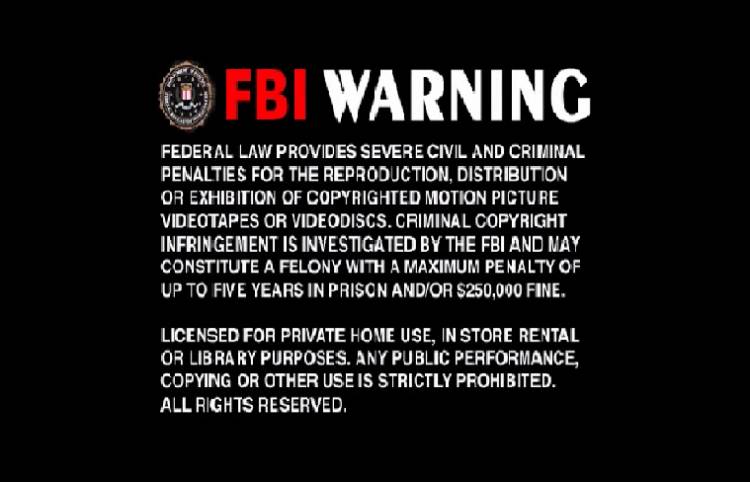CRIMINAL COPYRIGHT INFRINGEMENT
Criminal copyright infringement is a breach of government law when an individual purposefully utilizes or circulates another's copyrighted material for monetary profit. Copyrights ensure the creator's thoughts and control their material as long as 70 years after their demise, or less if the creator is a company. The assurance covers composing, music, aesthetic works, and carefully put away material including books, tunes, verse, workmanship, films, realistic plans, PC programming, site content, and engineering. Copyright doesn't secure realities, thoughts, disclosures, ideas, or hypotheses that are not recorded in actual structure.


What is Criminal Copyright Infringement?
Criminal copyright infringement is a breach of government law when an individual purposefully utilizes or circulates another's copyrighted material for monetary profit.
Copyrights ensure the creator's thoughts and control their material as long as 70 years after their demise, or less if the creator is a company. The assurance covers composing, music, aesthetic works, and carefully put away material including books, tunes, verse, workmanship, films, realistic plans, PC programming, site content, and engineering.
Copyright doesn't secure realities, thoughts, disclosures, ideas, or hypotheses that are not recorded in the actual structure.
While most copyright infringement is between two private parties (a common issue), it can ascend to criminal allegations when the public authority makes a move in light of the fact that the unlawful use or sharing of copyright material is done intentionally. The FBI has recently made 'intellectual property' burglary/theft a need for its criminal analytical program.
Reason for Copyright
-
To secure the privileges of innovators and makers to advance the advancement of valuable expressions and science.
-
To give motivations and prizes to the banks for delivering unique substance and furthermore instigate makers to establish a climate comprehensive of greater innovativeness. The leaser can be monetarily profited by their copyrighted work and get appropriate acknowledgment.
-
To support the innovator or maker to think of grew new imaginative work. Imagination and progress go an equal line, in this manner, no polite society can exist without copyright assurance henceforth, crafted by maker or designer is ensured.
-
Finds some kind of harmony between the privileges of the proprietor just as a society.
What are Criminal Copyright Infringement Charges?
To demonstrate criminal copyright Infringement charges, the public authority/ government should deliver proof of 4 things:
(1) the creator had legitimate copyright;
(2) the respondent utilized, duplicated, or appropriated the material without the creator's authorization;
(3) it was done deliberately; and
(4) it was accomplished for individual monetary benefit or business advantage.
Crime accusations can be documented when 10 duplicates of a copyrighted work are imitated or circulated with a retail estimation of more than $2,500. Offense allegations can be documented with only 1 duplicate and retail estimation of $1,000. This is an extremely low edge for the public authority to seek after criminal copyright encroachment charges and why you should enlist experienced defense lawyers.
Possible Punishments and sentences for Criminal Copyright Infringement
You can confront serious punishments whenever indicted for criminal copyright infringement including:
Jail – You can be condemned as long as 10 years for a criminal conviction or for second offenses; as long as 5 years if the offense includes 10 duplicates or worth more prominent than $2,500; or as long as 1 year when at least 1 duplicate has retail esteem more noteworthy than $1,000. Under the government condemning rules, sentences can be expanded when infringement includes gadgets that sidestep security (for example computer game copiers), respondent assumes a position of authority in the offense, danger of death or genuine injury, or ownership of a risky weapon. Sentences might be decreased if interest is insignificant.
Fines – You can be fined $250,000 for the first offense including 10 duplicates or worth more noteworthy than $2500. Fines increment to $500,000 when the offense includes bypassing security controls and $1,000,000 in the event that it is an ensuing offense. You can likewise be fined for utilizing a bogus copyright notice, for eliminating copyright, and for bogus portrayals on a copyright application.
Compensation – You might be needed to reimburse monetary misfortunes to the craftsman because of your copyright infringement.
Potential defenses against Criminal Allegations
There are a few potential defenses to demonstrate your blamelessness:
Reasonable Use Exception – Even however you may encroach upon copyright there are circumstances when it tends to be managed without the proprietor's consent. Use is permitted without the proprietor's authorization when it is restricted and "changes" the first work for input, analysis, or satire. This protection takes a gander at the motivation behind your work and is more probable considered reasonable use on the off chance that you change the first work into something new as opposed to just make duplicates. It likewise is reasonable use with more modest amounts of material and on the off chance that it doesn't hurt the retail market for the first work.
Free Creation – You don't infringe on copyright on the off chance that you made your work without thinking about the copyrighted material. To win on this safeguard, you should demonstrate there was no chance to get for you to know about the copyrighted work before you made your own work.
First Sale – This is a restricted defense that applies just to a particular duplicate of the first work. When the craftsman sells the first work, copyright law no longer ensures that specific duplicate. The new proprietor can arrange, pulverize, lease, sell, or part with their duplicate since the craftsman no longer controls its privileges. This guard applies just to the new proprietor and doesn't make a difference to an individual possessing the material. This protection doesn't have any significant bearing to PC program rental, sound account rental, or pulverization of craftsmanship that meets the Visual Artists Rights Act necessities (ex. endorsed by the craftsman, restricted versions). It applies to products made legally abroad and imported to the US.
Resolution of impediment – Charges for criminal copyright infringement should be made within three years of the wrongdoing. On the off chance that the public authority stands by too long to even think about filing a suit, it may not be substantial.
Consent – You can't be charged for criminal copyright infringement if the creator allows you to utilize or convey the material. It additionally doesn't make a difference to limited quantities of admissible replicating (copies).
Public Domain – Documents that are in the "public space" are not liable to copyright laws. This incorporates materials where the copyright has lapsed, the proprietor has neglected to recharge the copyright, or the proprietor puts the material or 'commits' it to the public space.
Purview – There might be no legitimate case if the copyright isn't appropriately enlisted by the craftsman/artist.
Know more about infringement of copyright, when Zoom took legal action against Jiomeet, see the video below-
BY-
ANANYA PANDEY












